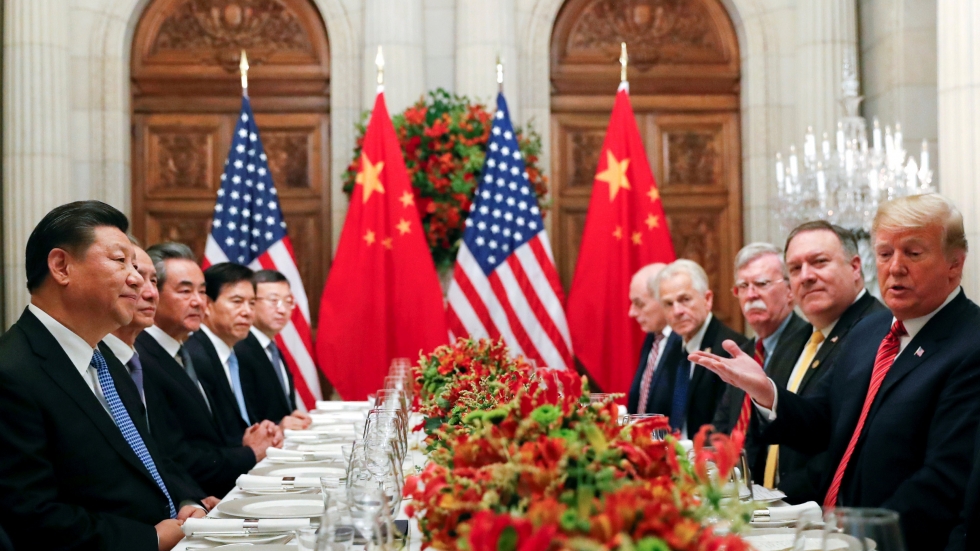Letter from China: From New York to Tianjin, Juilliard bridges West and East with music
 Representative image
Representative image
By Wang Xiaopeng
TIANJIN: While checking WeChat Moments, I found a set of photos shared by Ryan Marc Shaw, a Chinese language enthusiast from the United States. After graduating from Tianjin Juilliard School, he is now exploring Yunnan Province in southwest China.
I had the privilege of meeting Ryan and his fellow classmates at their commencement ceremony on May 24 at the school's campus in the Binhai New Area in Tianjin Municipality, north China. The school held its commencement ceremony on the same date as the Juilliard School in New York, weeks ahead of most universities in China.
Dressed in caps and capes, the 30 students of the class of 2024 proudly received their Master's degrees at the ceremony. These bright young students hailed from 7 countries and regions, including America and Mexico.
The Tianjin Juilliard School is a historic collaboration between the renowned New York-based Juilliard School and its partners in Tianjin. In terms of its design, the school pays homage to the Juilliard School in New York. There are no walls surrounding the main building, which resembles a mysterious spacecraft sitting on the bank of the Haihe River.
Strolling around the lobby, I was surrounded by smiling graduates and their parents.
Among them was Diego Acosta, a flutist from Mexico, who continued his studies in Tianjin after finishing his undergraduate degree at a university in his home country.
"Here, every day is unique in its own way as a result of a very unique institution in the world where Eastern and Western aesthetic perspectives converge," Acosta said during his student speaker address.
He told me that he has enriched his flute performance by integrating the Changdi, a Chinese transverse flute often played in Chinese folk music or opera.
Several graduates showcased their artistic talents during interludes at the ceremony. I was particularly moved by the emotive strains of a violin played by Hyunyoung Lee, who hails from the Republic of Korea.
Dressed in a playful plum-pink costume on stage, Lee's masterful performance earned her an offer from a prestigious symphony orchestra in Guangzhou. It is opportunities like these, she said, that encouraged her to stay in China after graduation.
Not far from her was Shaw, the bass trombonist, arguably the most hilarious person I met that day. He sometimes mixed the local dialect into his conversation. He saw Tianjin Juilliard School as the perfect fit for him, as he hoped to expand his horizons and embrace diverse music and cultures to hone his trombone performance.
Shaw said he loves Chinese culture, including ancient architecture. He said one day he went for a run along the river and ran into a large statue of Bodhisattva Guanyin. Beside the statue, there is a temple that dates back to the Ming Dynasty (1368-1644).
Chinese history is rich, and its traditional culture has been integrated with modern elements, Shaw said.
Shaw's Chinese classmate Liu Yunbei, who wore a white Chinese traditional Qipao dress, also shined bright on the big stage that day.
The cellist was awarded the Joseph W. Polisi Prize for exemplifying Tianjin Juilliard's values of "artist as citizen" from Polisi, who is president emeritus and chief China officer of the Juilliard School and chairman of the board of directors of the Tianjin Juilliard School.
Having already obtained a master's degree in Instrumental and Orchestral Studies, she decided to pursue another master's degree in Instrumental and Chamber Music Studies at the school.
Liu is scheduled to participate in the Aspen Music Festival and School in the United States during the summer vacation. "I have the opportunity to be mentored by some masters and even perform with them," she said. "I will also bring some Chinese melodies to them."
Sitting under the glass ceiling of the main building, Polisi told me that in the Tianjin Juilliard School, Chinese students can create musical works with students from the United States and other countries and regions, which symbolizes the ability of human beings to get along with each other and to respect each other. He said that the school is a fusion of two very rich cultures, likening it to a "catalyst" that provides new "ideas" for China-U.S. cooperation and exchanges.


Leave Comment